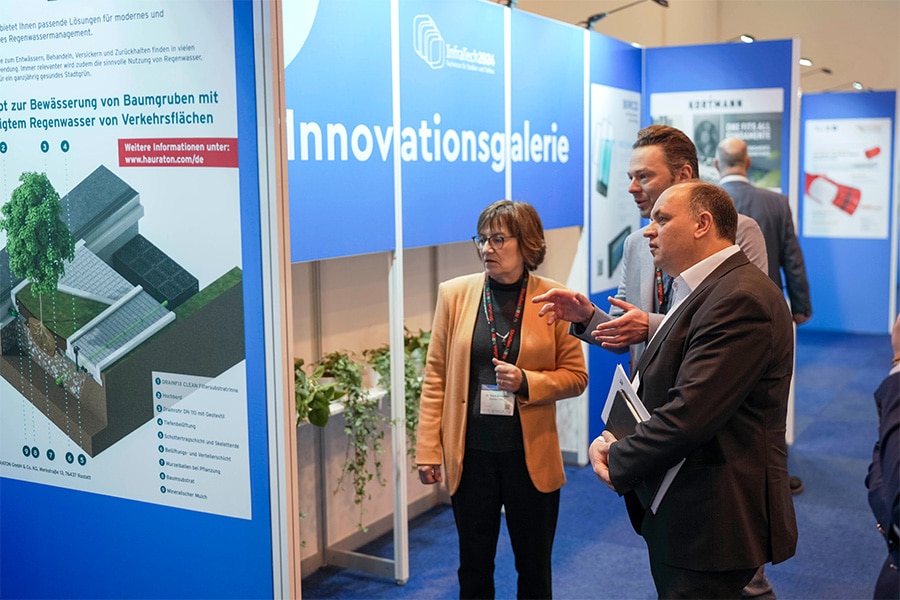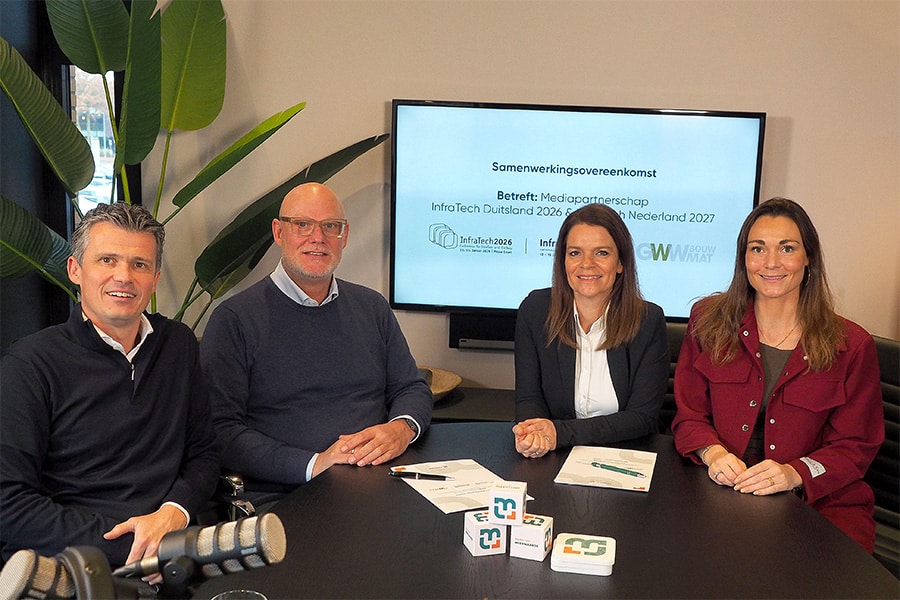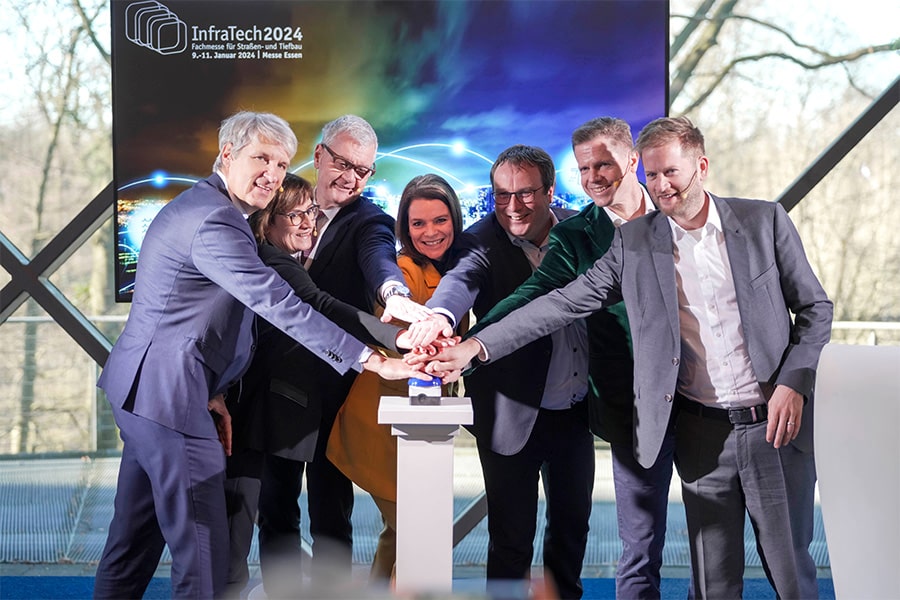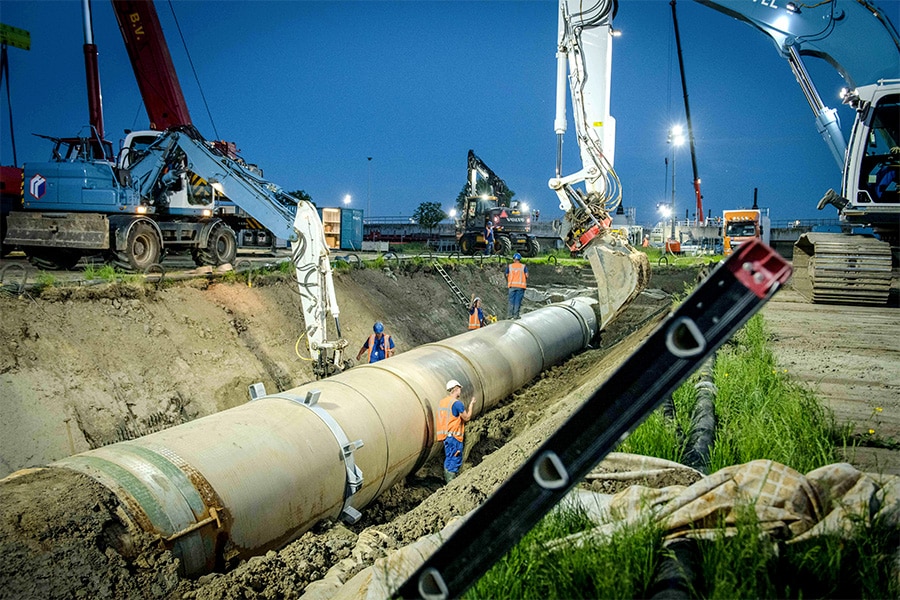
The power of fiberglass reinforced piping systems
Fiberglass reinforced plastic (GRP) pipes and fittings from Amiblu are located throughout the Netherlands. From sewers and pressure pipes to drill pipes and drinking water pipes. Especially the proven durability in combination with the high mechanical strength and chemical resistance are reasons for municipalities, drinking water companies and water boards to choose GRP pipes.
Before we switch to the many possibilities and applications of GRP pipes and tubing, Rob Schrijver first tells us more about Amiblu. "In a nutshell, Amiblu is a specialist in GRP system solutions for wastewater, rainwater, drinking water, jacking, renovation and industrial applications. We were created in 2017 by the merger of Hobas, known for centrifugally cast pipe systems, and Flowtite, specialist in continuously wound pipe systems. These are two different production methods. With Amiblu, we therefore combine the best of both worlds. We operate worldwide with our own location in each country. We as Amiblu Netherlands are responsible for the Dutch market from Tiel."
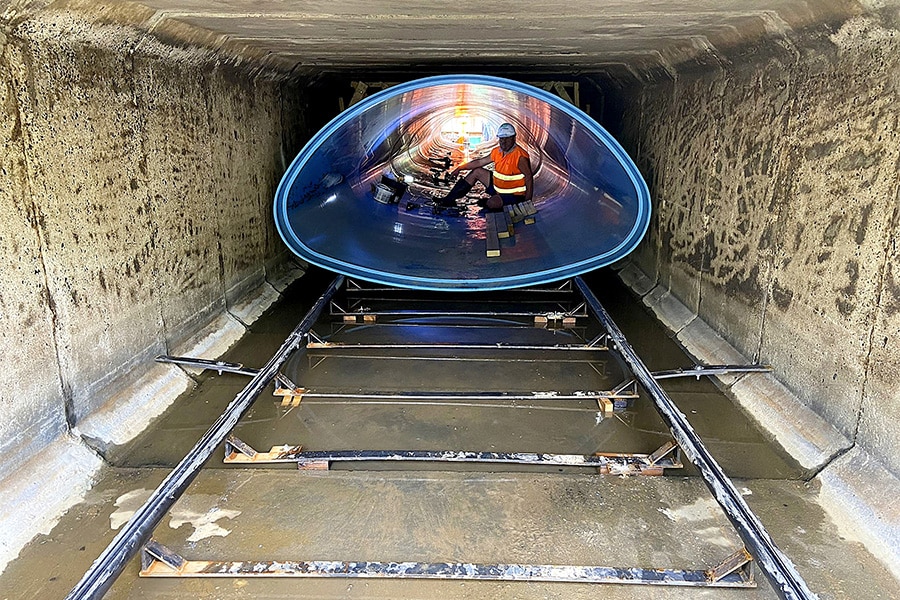
Combination of pluses
Everyone knows concrete and PVC, but GRP has been around since the 1950s. The GRP pipes produced back then are still serving today. As such, it has a tremendously long lifespan. GRP is known as an expensive material. "But, and here's the thing, it can offer such more advantages project-wise compared to other materials," Rob said. "In addition to its enormous longevity, it is resistant to chemicals and corrosion, lightweight so easy to install with a simple joining method. All in all, it is extremely durable. The combination of these advantages, in turn, makes GRP price competitive in many applications. Go figure, the weight of a GRP pipe is much lower than concrete and ductile iron pipes. So the costs of transportation, handling and installation, among other things, are much lower. Maintenance costs are also lower because the wear-resistant and chemical-resistant inner liner of the pipes is very smooth, so you get less adhesion."
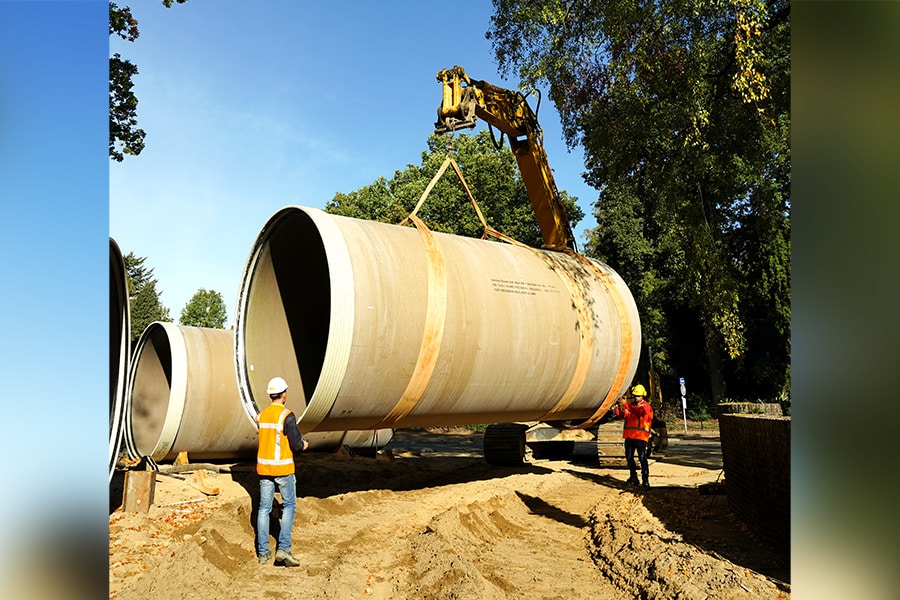
Proven durable
According to Rob, one should not look at the bare meter price, but at the overall picture of a project. Amiblu has therefore invested a lot in the sustainable aspect of its GRP products. "We often talk about recycling, but actually you want to have a product that you don't have to replace. In recent years, we have had so-called Environmental Product Declarations (EPDs) made of much of our range, and had the sustainability verified by independent third parties. If you add this to the other plus points such as durability, strength, chemical resistance, GRP products offer a lot of opportunities for the future."
Crisscrossing the Netherlands
GRP pipes are available in diameters from 200 mm to 4 meters, in various practical lengths. They can be found crisscrossing the Netherlands, from Maastricht to Den Helder and from Eemshaven to Sluis in Zeeland. Applications are diverse: sewers, pressure lines, drilling (open- and closed-front) and drinking water pipes. "It is up to us to further publicize the full potential and application possibilities of GRP to end users and contractors in order to exploit new growth markets. There are many pipes of 500 mm diameter and larger that need to be replaced, exactly the size we are strong in, and the larger the diameter the more interesting we can be. In doing so, we also supply a lot of jacking pipes under busy intersections in a city or under a railroad line or locations where it is not possible to dig."
During InfraTech 2025, Rob and his Amiblu colleagues hope to talk to municipalities, water boards and drinking water companies about the possibilities of GRP piping systems. You are most welcome to visit them at booth 4.200.
Heeft u vragen over dit artikel, project of product?
Neem dan rechtstreeks contact op met Amiblu Netherlands B.V..
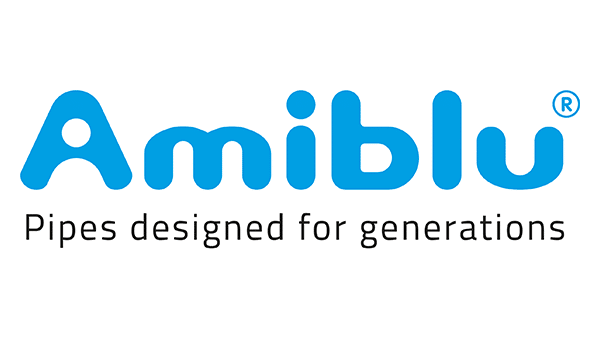 Contact opnemen
Contact opnemen
